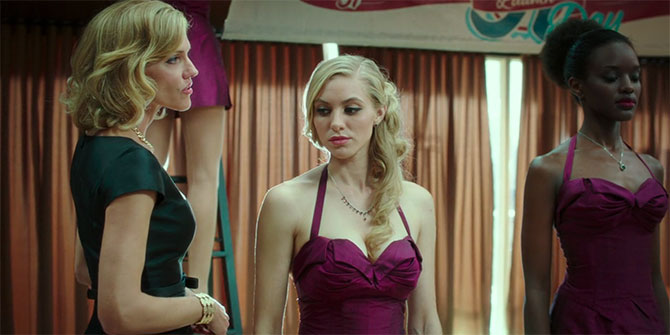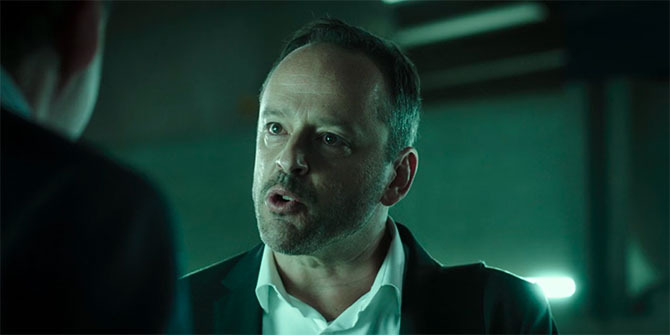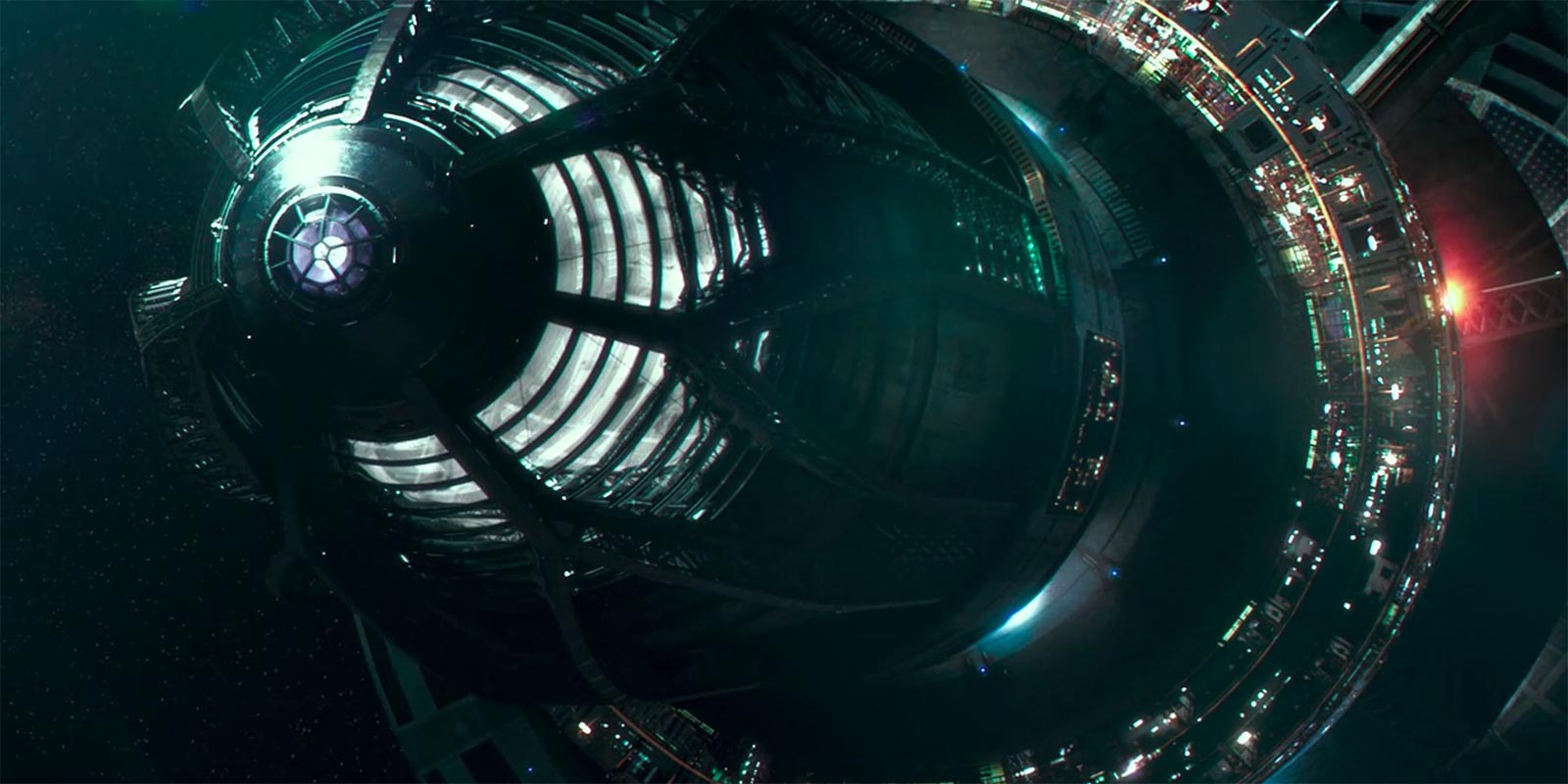I wish I hadn't watched this one.
Contrary to my recent, very enjoyable experience with Prospect, Ascension falls under the category of "one of those shows I should have skipped."
I gave it a go because the concept sounded amazing: a murder mystery in space, starring Tricia Helfer of Battlestar Galactica. I mean, what's not to like when you pitch a show like that?
Ascension is set on a generational colony ship that is fifty years into its one-hundred year journey. The journey originally began in the 1960s, and after spending so much time in isolation, the people onboard are antsy.
When a murder occurs during a white-tie event, the crew race to find the culprit before panic spreads amongst Ascension's occupants.
The setup for this murder mystery had the potential for a tense, gripping thriller turned detective noir; instead, we got a regressive plot with writing so cringe-worthy I almost turned off the TV.
The Good

The only reason this series isn't getting an "F" is because its concept was genuinely decent.
Tricia Helfer—most widely known as the Cylon "Six" from Battlestar Galactica—also saved the show with her flawless performance as Viondra Denninger, a power broker and wife of the ship's captain.
Tricia plays a lot of beautiful, intelligent women who secretly have hearts of gold. It's a role she does well, and in Ascension it's no different. Viondra's believability as a flawed-but-empathetic individual went miles beyond what the rest of the crew had to offer.
With its stellar concept, Ascension could have had it all, and it would be nice if there were more good qualities that we could list. Alas, there are none.
The Bad

Beyond its concept, Ascension was incredibly straightforward in its execution. It came off as very "Americana" and run-of-the-mill, and while you expect to see stories like these from the late 90s and early 2000s—when a desire for Americana was rife—Ascension was released in 2014.
That's not too long ago, so its age doesn't give it an excuse for an otherwise overly simple delivery.
In Ascension, most of the men are manly men with chiseled jaws who speak in gruff voices about what's best for God and Country. The US government is always right.
This would have been a fun critique of Western-styled propaganda if Ascension was aware of it. Unfortunately, this series seemed to genuinely cling to this retro ideology with a noted fondness for a bygone era.
If you choose to watch it, you'll need a high tolerance for cringe-worthy one-liners, as Ascension had dozens of them—up to and including one character proudly declaring "we're going full Snowden."
The worst sin this series committed, however, was its apparent attempt to redeem a straight-up sociopath; how it seemed to posit that the head of the Ascension program, Harris Enzmann, was a tortured genius who should be given a free pass for his bad behaviour.
In the series, Enzmann has inherited his role as program director from his father. He's smart, yes, but he's also bigoted and obsessed with eugenics. Very quickly, Enzmann proves himself to have a god complex.
He's a voyeur who wants to breed the perfect human being, and he spouts off shockingly outdated lines like "They [homosexuals] were left out by design. It's not a matter of prejudice. Purely practical." He gaslights the only gay character on the show and their mutual boss whenever he has a chance.
It would have been okay to show this sort of moral failing if the series was trying to prove how truly awful Enzmann is. At one point I thought they would.
Unfortunately, when Enzmann's boss takes issue with his ethics, the show explicitly teaches us that he was right all along by immediately having the entire program fall to pieces once he's removed.
Ascension then grinds salt in the wound by having this boss apologize to Enzmann and admit he was right. She reinstates him as head of the program. Enzmann is not a case of a redeemable villain, by the way—a thing that can and does exist in fiction. Nor is he a case of a misunderstood antihero who is trying to do what is right via questionable methods.
The character is simply toxic, and his flirtation with eugenics should have been unequivocally condemned by the narrative.
Unfortunately by rewarding him for his bad behaviour, and by punishing those who protested, the show implies—perhaps inadventantly—that this moral failing can be overlooked so long as the person is a genius.
Messages like these are what allow abusive behavior to thrive in real-life workplaces, where terrible-but-talented people can steamroll their way to the top. It's a shame the writers didn't do better with this narrative.
The Verdict
This show was originally slated to be a miniseries, but it's clear from the final episode that the creators had hoped for a Season 2. SyFy—the channel that had originally carried it—put the axe to this idea fairly quick.
An interesting thing to note is that Ascension has a very similar plot twist to Orbiter 9—almost identical in fact. If you're looking for a show with similar themes and a much better execution, we recommend watching the latter.
